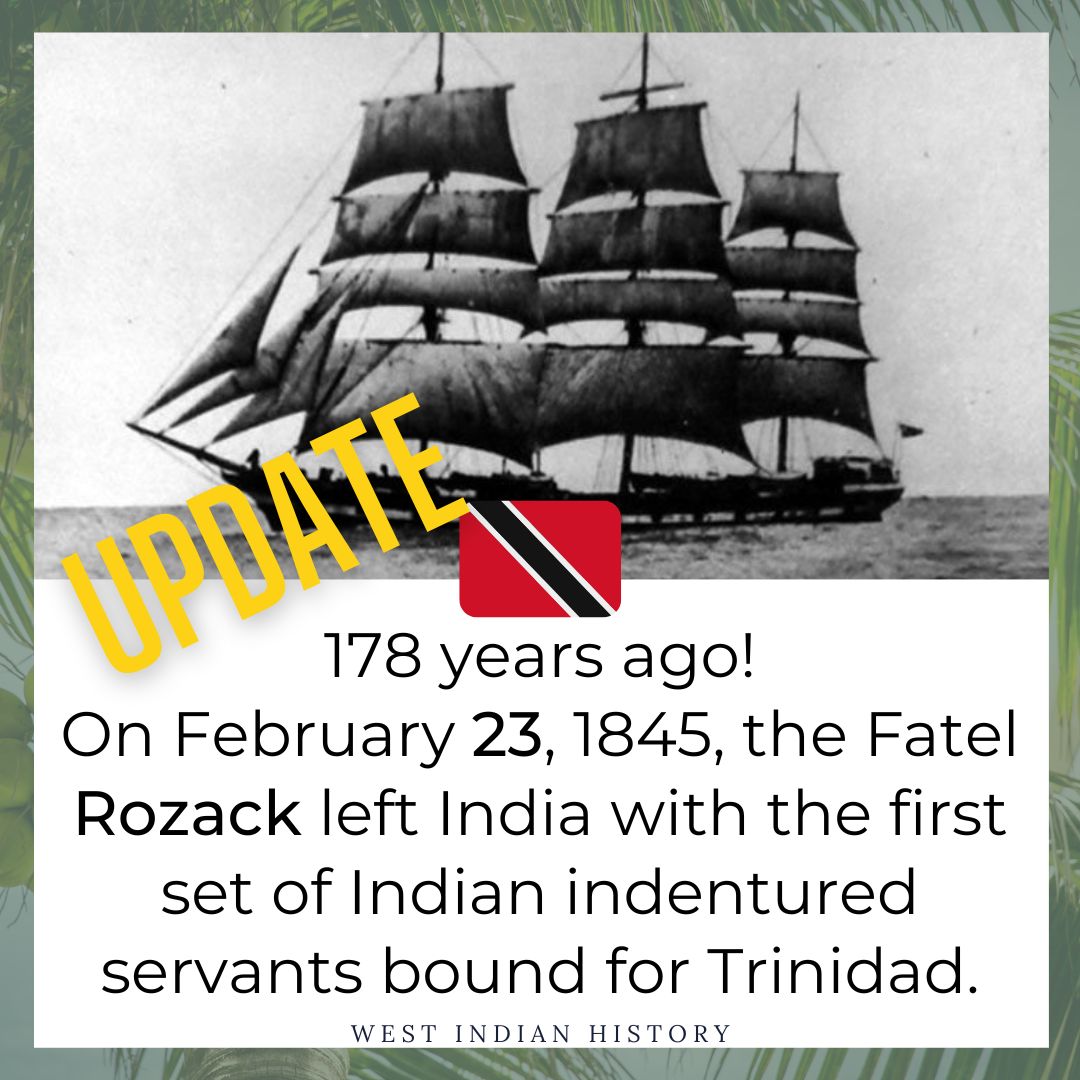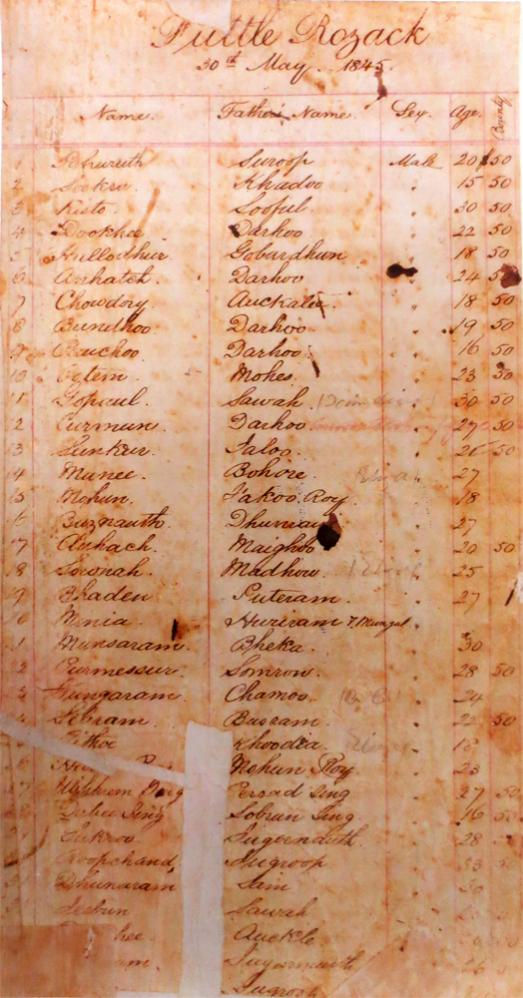Fatel Razack - The First Ship that brought Indian Indentured Laborers to Trinidad
This post is about the Fatel Razack, the ship that left India on February 23, 1845 carrying the first set of Indian Indentured Laborers bound for Trinidad.
This page may contain affiliate links and ads at no extra charge to you. If you purchase something from these links and ads, West Indian Diplomacy may earn a small commission that goes towards maintaining the website and sharing our history.

On February 23, 1845, the Fatel Rozack (commonly spelled "Razack") left Calcutta, India with the first set of Indian indentured servants bound for Trinidad.
Mr. Dennis Moore explains that February 23rd is the correct departure date, and not February 16th. His book, The First East Indians to Trinidad: Captain Cubitt Sparkhall Rundle and the Fatel Rozack, also corrects the spelling of the Fatel Razack to Fatel Rozack. There are several spellings listed throughout historical documents.
I read his book and highly recommend it. It is filled with important biographical information on the Fatel Rozack's captain, corrects decades worth of information about the ship, and explains his conclusions. It is hard for us to get information on these ships and I am thankful that Mr. Moore dedicated long hours to preserving this history.
You can purchase The First East Indians to Trinidad: Captain Cubitt Sparkhall Rundle and the Fatel Rozack by Mr. Dennis Moore on Amazon or click the link below.
The ship’s manifest and register notes “Futtle Rozack.” The name translates to “Victory of Allah the Provider.”
She was owned by a Muslim merchant named Abdool Razack Dugman, and likely built in India.
Abdool Razack Dugman hired Cubitt Sparkhall Rundle as the captain.
The Fatel Rozack departed Calcutta with 237 passengers: 187 males, 22 females, and the remainder children. Approximately 227 Indian passengers arrived in Trinidad after spending 103 days at sea crossing 14,000 miles. 6 people died on the journey, 5 males and 1 boy.
The Fatel Razack landed in the Gulf of Paria on May 30, 1845.
There is no shipping intelligence on the Fatel Rozack after 1857.
Dookie Meah was one of the Fatel Rozack’s passengers. His name is listed as number 4 on the ship’s register. He went on to work at the Exchange Estate in Couva. He also founded Trinidad’s first mosque.

The indentureship period lasted from 1845 to 1917. 147,000 Indians (mainly from Uttar Pradesh and Bihar) would eventually become indentured servants in Trinidad.
This ship carrying Indian indentured servants would forever change the population of Trinidad and the greater Caribbean.
References:
The First East Indians to Trinidad: Captain Cubitt Sparkhall Rundle and the Fatel Rozack by Mr. Dennis Moore
Trinidad Express
https://www.caribbeanmuslims.com/dookie-meah
You may also like these posts:
5 Life-Changing Books About Guyana + Trinidad & Tobago, Including Coolie Woman
Petition to Preserve & Digitize Indian Indentured Servant & Enslaved African Records in the Caribbean UPDATES
Chinese Arrival Day in Trinidad
Melissa D. Goolsarran Ramnauth, Esq. is a trademark and contracts attorney. She primarily helps growing businesses with trademarks, contracts, and name clearance searches.
She writes articles on the importance of trademarks, trademark law updates, and also West Indian history (with an emphasis on India, Trinidad, Guyana, and the United States).

Visit my Trademark Law Firm website for more information on trademarks, copyrights, and contracts!
www.mdgrlaw.com
Disclaimer: This post is for informational purposes only and does not constitute legal advice. Please see our Terms & Conditions and Privacy Policy for more information regarding use of this site. All information is true and accurate to the best of our knowledge. The information on West Indian Diplomacy is “as is.” We make no representations or warranties, express or implied, with respect to the content provided on this website or on any third-party website which may be accessed by a link from this Web site, including any representations or warranties as to accuracy, timeliness, or completeness. West Indian Diplomacy will not be liable for any losses, injuries, or damages from the display or use of this information.